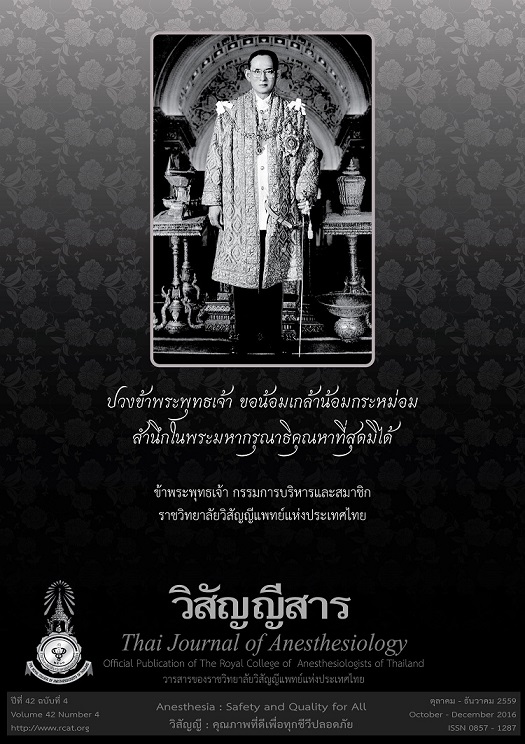Resident’s personal opinion on the stress events in anesthesia
Main Article Content
Abstract
Objective: To verify the crucial period of anesthesia that involves a high work stress in
anesthesia residents.
Material and Method: A study was performed on 37 volunteering residents. Participants logged on to a website at their leisure and answered contents of an anesthesia-related stress test designed through questionnaires. The test comprised sources of stress: pre-, intra- and post-operative sections. Two educational personnel performed the interpretation and assessment of the resident’s personal opinion. All associated factors were analyzed by ANOVA as well as Tukey HSD and Dunette T3 following the Levine’s test. p value less than 0.05 with a 95% confidence interval were noted as statistically significant.
Results: Fourteen first-year (58.33%), seven second-year (29.17%) and sixteen third-year residents (66.67%) willingly participated in the study. All participants worried about the stress events in the peri-operative period. There were statistically significant differences in mean
scores in the post-operative events among the first, second and third-year residents as 7.14 ± 1.09, 6.85 ± 1.64 and 5.62 ± 2.05 respectively. Particularly, the unstable vital signs, painful patients and anaphylactic/anaphylactoid reaction after surgery appeared to be significant differences between the first and third-year participants.
Conclusion: All participants worried about the stress events in the peri-operative period. The post-operative events predominantly were the crucial period of anesthesia that involved a high work stress in anesthesia residents.


